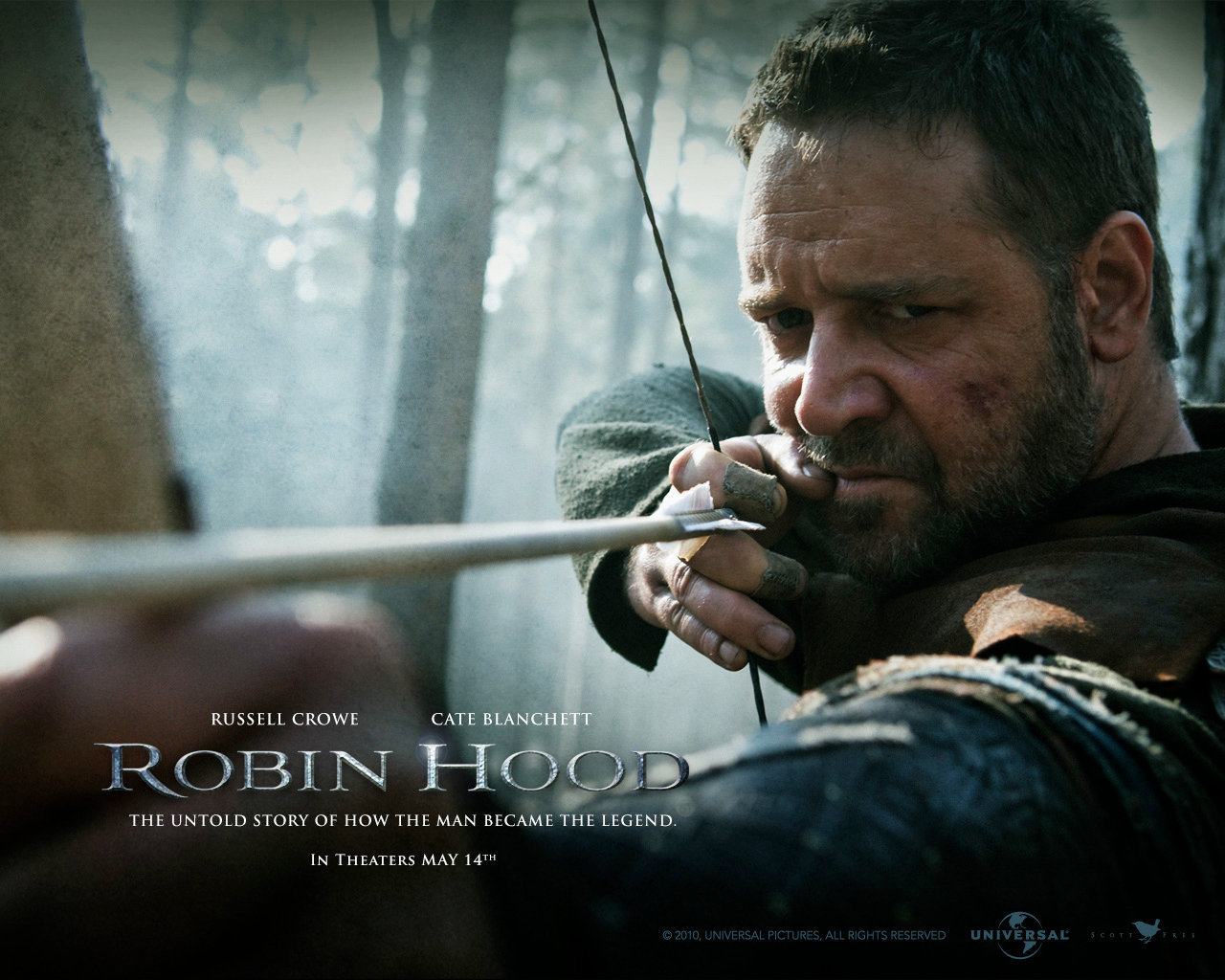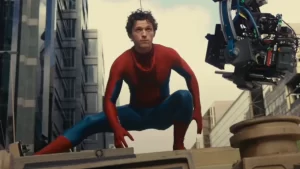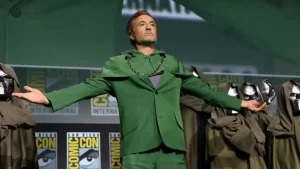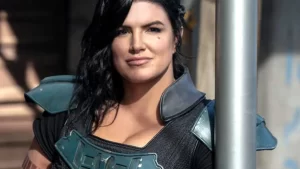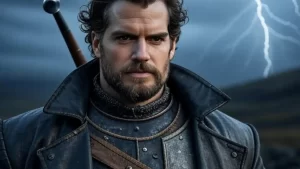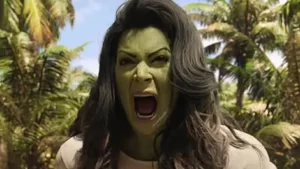The stand-alone epic: Is it a lost art form in Hollywood Land? I ask this question because I was extremely stunned to discover that this film is the first of an installment. Of how many sequels are planned, I am not certain, but I would never have pegged the likes of Ridley Scott or Russell Crowe to go down this road. Based upon their previous work in Gladiator (2000), it would seem that this pair could take the tale of Robin Hood to unprecedented levels of awe and respect. The reason for this expanded vision of the Robin Hood universe will become apparent later on in this review, but after considering the overall quality of this film in relation to a sequel(s) this is absolutely the sort of blueprint to follow.
Not so if this is the only time we see Crowe sprinkling headshots over sadistic soldiers. With the frequency Hollywood is accused of having lost all creative originality, returning to the “sequel well” so often only confirms this fear. Of course, quality product in the end forgives all and although Robin Hood is by no means the quintessential, stand-alone Robin Hood tale, it is the first step towards something great.
Screenwriter Brian Helgeland does a good job in creating a story that owes little to its Robin Hood predecessors. Although the themes of rich vs. poor and might vs. right remain dominant in this script, exploring the political complexities from the local authorities to the top of the monarchy is what makes this Hood unique. This story is less about a civil war in England and more about a conspiracy to make the crown vulnerable to a massive French invasion. By developing this plot, the audience is privy to a more authentic depiction of the fragmented authority structure that existed outside the king’s geographic location. Local lords acknowledge the King of England, but when tax rates go way up, they feel the unsavory sensation of injustice as much as the commoners who work and live upon their land.
Cue our hero, but with some discrepancies. We all know Robin Hood as a man of the people who fought for their rights over a tyrannical government, but this Robin is painted in a more authentic, 12th Century light. He is a trained mercenary of selective principle whose loyalty for his brothers in arms exceeds any he has for Richard the Lionheart. Another stark departure from classic Hood is the manner in which Robin and Marion are paired. It does seem a tad far-fetched (even for fiction) as Robin reaps benefit after benefit from a deception of his own hand that occurs earlier in the film. Regardless of Robin finding himself in a series of profitable situations, where he contrasts from Prince John as an opportunist is that he is not shameless about his good fortune and looks to pay it back. Therein lays the true focus of this film: firmly establishing Robin’s relationship to Marion and to the social plight of the people before his individual notoriety becomes praised or reviled. Unfortunately, this focus leaves Robin’s relationship with his “merry” men much to be desired. Expect those relationships to fully evolve in the next film.
The overall performance quality of this cast is very impressive and rightly so due to the amount of Oscar gold backing the marquee names: Russell Crowe and Cate Blanchett. Crowe makes a very conscious effort throughout the film to keep his depiction of Robin as reserved as possible. Those of you anticipating a Maximus-type “release the dogs of war,” visceral explosion from Crowe will be sorely mistaken. The key emotional moments for Crowe are the scenes he shares with Blanchett. This is where Crowe uses the subtle stare to his advantage. If a man like Robin Hood were to have existed in this time in history, there would be precious few things he would be supremely confidant of. Being a lover would not be one of them.
Robin is primarily a survivalist and a healthy does of humility and temperament are the order of the day. This is where the romance begins between Robin and Marion as she too is every much the survivalist, attempting to build her future from her hands and knees in the mud and clay. By all means, Cate Blanchett outshines all other actors as the most endearing and sympathetic character in the cast and regardless of how much mud is caked on her face, her beauty shines through mastery of facial expression and piercing eye contact. Blanchett’s ability to flip the switch from determined laborer, to respectful daughter, to inspiring leader, to a loving partner is unmatched. She steals every scene and is emotionally tethered to every character.
Another performance that stands out is Oscar Isaac’s depiction of Prince John. At first he comes off as a Joaquin Phoenix clone both in terms of look and portrayal of the token despot. As the character becomes more of a focus in the plot, Isaac breathes intelligence into a character that the audience has come to know as strictly childish and maniacal in previous Hood incarnations. This is certainly a different take on Prince John and it forces the audience to consider the question: What if you inherited a bankrupt crown? No other Robin Hood tale has considered this perspective.
Had this film been a strict period piece along the lines of Braveheart (1995), there is no question that the content of this film would be rated R. It seems as though dollar signs once again prevail as the highly desired PG-13 rating was targeted by the production staff to expand the film’s summer movie audience. The film does not overtly suffer from this, but in comparison to previous Hood tales, this one is fairly tame. Neither the action sequences nor the depiction of violence push the envelope in any way. The very beginning and ending of the film use a couple of dynamic angles to accentuate Robin’s mastery of the longbow. Had this been used throughout the film, the overall visual appeal would have been increased tenfold.
Ultimately, it is the unique plot of this particular Robin Hood that draws the audience in and it is the collective performance that makes this a very entertaining and satisfying movie experience. As a result, this has raised the bar exceptionally high for the film’s sequel which is a very good thing for the audience. Let us hope that Ridley Scott will be up for this challenge and not be too distracted with his work on the Alien prequel franchise.

